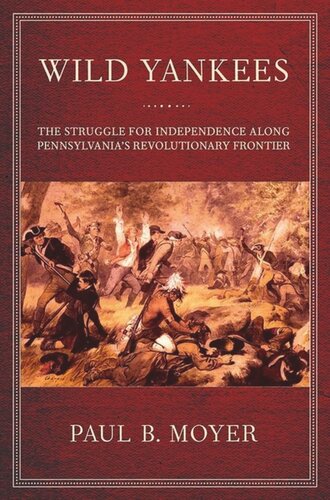

Most ebook files are in PDF format, so you can easily read them using various software such as Foxit Reader or directly on the Google Chrome browser.
Some ebook files are released by publishers in other formats such as .awz, .mobi, .epub, .fb2, etc. You may need to install specific software to read these formats on mobile/PC, such as Calibre.
Please read the tutorial at this link: https://ebookbell.com/faq
We offer FREE conversion to the popular formats you request; however, this may take some time. Therefore, right after payment, please email us, and we will try to provide the service as quickly as possible.
For some exceptional file formats or broken links (if any), please refrain from opening any disputes. Instead, email us first, and we will try to assist within a maximum of 6 hours.
EbookBell Team

4.4
12 reviewsNortheast Pennsylvania's Wyoming Valley was truly a dark and bloody ground, the site of murders, massacres, and pitched battles. The valley's turbulent history was the product of a bitter contest over property and power known as the Wyoming controversy. This dispute, which raged between the mid-eighteenth and early-nineteenth centuries, intersected with conflicts between whites and native peoples over land, a jurisdictional contest between Pennsylvania and Connecticut, violent contention over property among settlers and land speculators, and the social tumult of the American Revolution. In its later stages, the controversy pitted Pennsylvania and its settlers and speculators against "Wild Yankees"—frontier insurgents from New England who contested the state's authority and soil rights.In Wild Yankees, Paul B. Moyer argues that a struggle for personal independence waged by thousands of ordinary settlers lay at the root of conflict in northeast Pennsylvania and across the revolutionary-era frontier. The concept and pursuit of independence was not limited to actual war or high politics; it also resonated with ordinary people, such as the Wild Yankees, who pursued their own struggles for autonomy. This battle for independence drew settlers into contention with native peoples, wealthy speculators, governments, and each other over land, the shape of America's postindependence social order, and the meaning of the Revolution. With vivid descriptions of the various levels of this conflict, Moyer shows that the Wyoming controversy illuminates settlement, the daily lives of settlers, and agrarian unrest along the early American frontier.